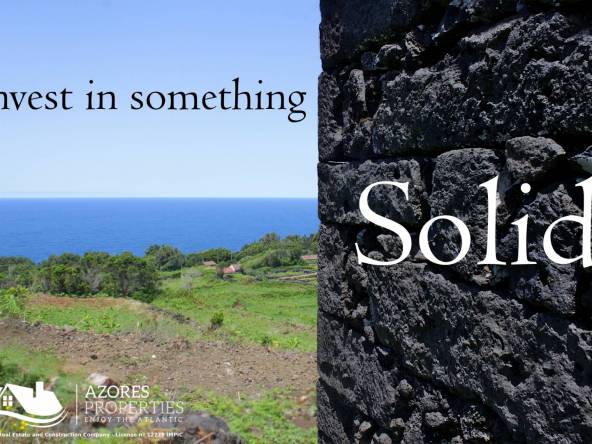Faial Island, part of the Azores archipelago in Portugal, is known for its natural beauty, rich culture, and a growing interest in real estate investment. If you’re considering buying or selling property on Faial Island, it’s crucial to understand the local real estate regulations to make informed decisions.
Acquiring Property
Property ownership on Faial Island typically adheres to Portuguese law. Foreign nationals can buy property in Portugal and on Faial Island without major restrictions. Faial Island offers a variety of property types, including traditional houses, modern villas, apartments, and rural properties. Each type may have specific regulations, zoning laws, and building codes that buyers should consider before making a purchase. Before purchasing property, buyers should conduct a thorough title search to ensure the property has a clear title and no outstanding debts or encumbrances. This can be done through the local land registry office (Conservatória do Registo Predial). Real estate agents on Faial Island are licensed professionals who can help buyers and sellers navigate the property market.
Taxes
Property taxes in Portugal include the Imposto Municipal sobre Imóveis (IMI), which is an annual property tax, and the Imposto sobre as Transmissões Onerosas (Stamp Duty), which applies to property transactions. Rates can vary based on property value and location, so it’s essential to consult local tax authorities for precise information. Both buyers and sellers are responsible for notary and legal fees associated with property transactions. These fees cover document preparation, deed registration, and legal advice. If you sell a property on Faial Island, you may be subject to capital gains tax on any profit made from the sale. The rate can vary, and there may be exemptions for primary residences or long-term ownership. Seek advice from a tax expert to understand your obligations.
Construction
If you plan to build or renovate a property on Faial Island, you must obtain the necessary building permits. Regulations regarding construction and renovation projects are enforced to maintain the island’s natural beauty and architectural integrity. Given Faial Island’s stunning natural landscapes, strict environmental regulations are in place to protect the environment. These regulations may impact construction projects and land use.
Investing
Investors and retirees looking to reside on Faial Island can explore Portugal’s various residency permit programs, such as the Golden Visa program or the Non-Habitual Resident (NHR) scheme, which offer favorable tax incentives. In conclusion, understanding the real estate regulations on Faial Island is crucial for both buyers and sellers. While Portugal generally welcomes foreign investment, it’s essential to navigate the legal and financial aspects carefully. Seek advice from local experts, consult with a real estate attorney, and stay informed about any updates in local regulations to ensure a smooth and successful property transaction on this beautiful island.





